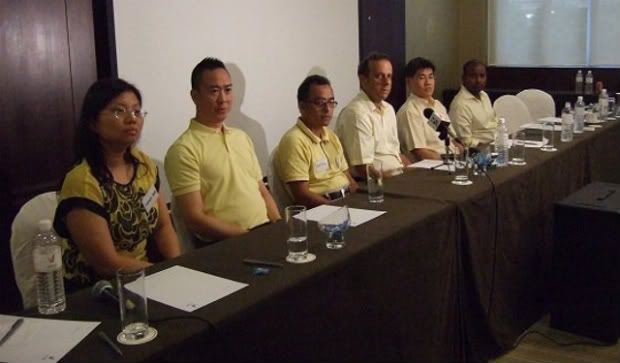Donaldson Tan

Happier times when the Reform Party first revealed its GE candidates in May 2010. From Left to Right: Hazel Poa, Alec Tok, Abdul Rahim Osman, Kenneth Jeyaretnam, Tony Tan, Jeisilan Sivalingam
Last November, the Reform Party (RP) has certainly laid claim to many places. Secretary-General Kenneth Jeyaretnam told the Straits Times that RP would field at least 20 candidates in at least four GRCs and two SMCs. Unsurprisingly, some of the constituencies targeted by RP are also targeted by other political parties. This includes Holland-Bukit Timah GRC which is targeted by the Singapore Democratic Party and Choa Chu Kang SMC which is targeted by Singapore People’s Party. It is hardly surprising that the Reform Party has been complained of being too aggressive in staking claims over electoral wards.
However, the situation has changed. The electoral boundaries have been redrawn. There are now more SMCs and less GRCs. While Choa Chu Kang SMC has been transformed into a GRC. Parts of West Coast GRC has been taken out to become new SMCs, i.e. Radin Mas SMC and Pioneer SMC. This has definitely disrupted the election campaigns by several opposition political parties. In order to avoid three-cornered fights which may sap precious party resources, opposition political parties would be meeting tonight and this Saturday to negotiate and trade “territorial claims” on electoral wards for this coming General Election.
The consensus among Opposition leadership is that unity should be the avoidance of three-cornered fights at the polls. The implicit assumption here is that opposition parties can negotiate and hold each other accountable to deals they had agreed with each other in terms of electoral allocation. The outcome of the negotiation would depend on political capital, organisational strength, and last but not least, the quality and quantity of GE candidates. The yard stick here would be opportunity cost. The credibility of the power broker in the negotiation is also just as important.
However, three-cornered fights would not be avoided this General Election. Independent candidates are excluded from the negotiation process. It is unlikely for any of them to announce their GE candidacy with exception to a notable few, such as Mr Andrew Kuan. He is the former Chief Financial Officer of the Jurong Town Corporation who once bidded for Presidency Candidacy, only to be turned down by the Presidential Elections Committee. Mr Kuan has announced his intention to contest Joo Chiat SMC where PAP and WP are expected to contest too. At the same time, there may be other independent candidates, notably among the 30 members who have quit the RP.
The credibility of the power broker has also been substantially hammered. The broker is none other than the Singapore Democratic Alliance (SDA). The SDA was hit by internal disputes which led to the exit of the Singapore People’s Party (SPP) from the SDA. Mr Chiam See Tong who is the Secretary-General of the SPP is also the only SDA representative in Parliament. As such, the SDA has lost political capital to conduct the negotiation although political parties may turn up due to necessity. The increase in number of SMCs from 9 to 12 has also intensified the rivalry between different opposition political parties which may feed into the distrust between parties.
